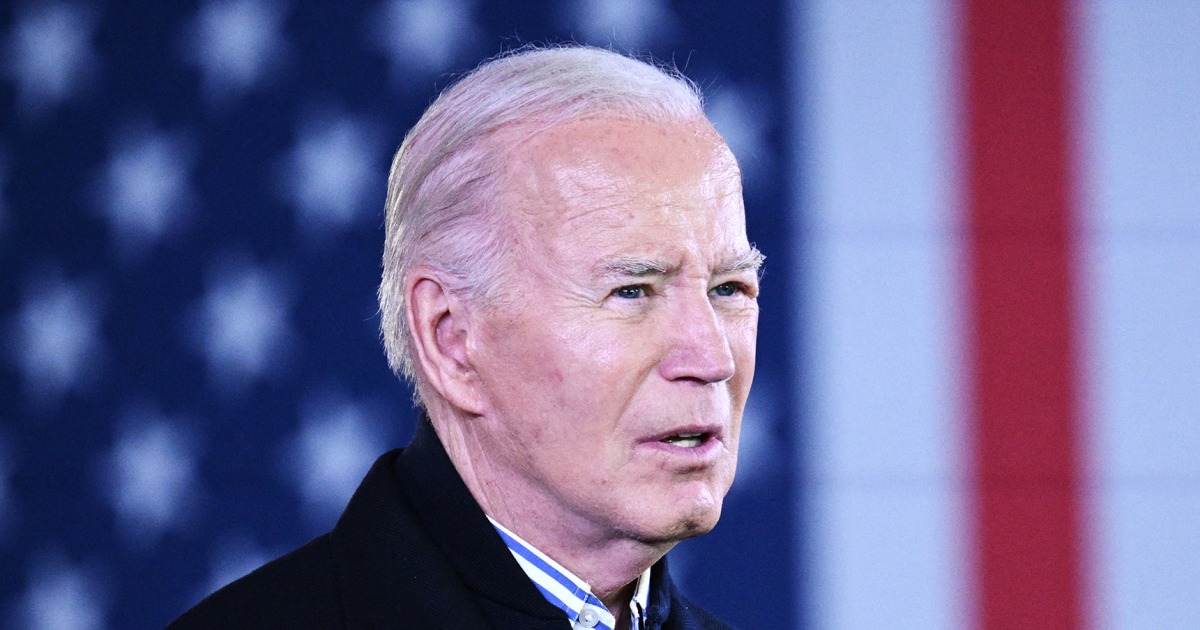
WASHINGTON — When he inked his 100th new judge in early 2023, President Joe Biden was outpacing former President Donald Trump at putting judicial nominees on the federal bench.
But as he enters his fourth year in office, Biden and the Democratic-led Senate have fallen behind the speed at which Trump and the GOP-controlled chamber were churning out new judges.
To date, Biden has secured 166 confirmed judges — 126 on district courts, 39 on appeals courts and one on the Supreme Court.
At this juncture, Trump had secured 187 confirmed judges — 133 on district courts, 50 on appeals courts, two on the Supreme Court and two on the U.S. Court of International Trade.
Biden will need to steer 68 more judges through the Senate this year to catch Trump’s four-year total. Democrats have a 51-49 majority in the chamber and have enjoyed broad party unity behind Biden’s nominees, even winning some Republican votes for many of them.
Russ Feingold, a former Democratic senator who is president of the liberal American Constitution Society, said the slowing pace is “alarming” and accused Democrats of taking their foot off the gas by allowing some current Biden nominees to carry over into 2024.
“This is an unfortunate development because things were going very well for the first two years,” Feingold said. “It’s pretty clear what happened this past year was the Senate simply did not prioritize judicial confirmations in 2023.”
The relative slowdown is also a product of other factors, including fewer vacancies available to Biden than Trump enjoyed, a Senate courtesy for home-state senators that allows Republicans to block district court nominees, and some turbulence last year when an extended medical absence by the now-late Sen. Dianne Feinstein, D-Calif., prevented Democrats from voting judges out of committee without GOP support.
The deceleration calls into question whether Senate Majority Leader Chuck Schumer can meet his stated goal of surpassing Trump’s total of 234 confirmed judges during Biden’s first term. Filling the courts with diverse judges from an array of professional backgrounds has been a goal for Biden and Schumer after Trump stacked the judiciary with young conservatives — mostly white and male — who are positioned to shape American law for generations.
Currently, there are four vacancies on appeals courts and 55 on district courts, according to the Administrative Office of the U.S. Courts. That number will grow with additional retirements.
Feingold said there’s still time for Democrats to catch up and even surpass Trump. He advised them to expand the Senate calendar by holding more votes on Mondays and Fridays, cancel the August recess and use the lame-duck session to confirm more judges. He said Senate Judiciary Chair Dick Durbin, D-Ill., should end the “blue slip” tradition that gives individual senators a veto over district court picks in their home states to prevent Republicans from keeping a slate of red-state judgeships open.
“It is possible to do much better than Trump did in his re-election year,” Feingold said. “But it’s going to take a serious prioritization.”
Biden’s judges are uniquely diverse
“One judge at a time, this Democratic Majority is making the federal bench look more like America,” Schumer said in a statement to NBC News. “Of the more than 160 judges confirmed by the Democratic-led Senate under President Biden, two-thirds are women, and we have confirmed more women of color to the bench than any other president’s entire time in office. We’ve had a good pace while having to balance other nominations, important legislation, and Republican obstruction. We will keep at it.”
Liberal advocates, too, are celebrating the diversity of the 166 judges Biden has confirmed so far.
Eighty of them have worked as public defenders or civil rights lawyers, if not both, according to a recent report by the Leadership Conference on Civil and Human Rights, a coalition of advocacy groups.
The report said that among Biden’s judges, 108 are women, 110 are people of color and 70 are women of color. Three-fourths of Biden’s circuit court judges, who have the last word on most matters of federal law, are women. Fifty-three of his judges are Black (including 33 Black women), 32 are Hispanic, 29 are Asian American and nine are openly LGBTQ.
Sen. Ted Cruz, R-Texas, said Biden’s judges are “radicals” and lamented the unity among Senate Democrats in confirming them.
“I have never seen judges as extreme as the Biden judicial nominees,” Cruz told reporters. “I’ve joked that Biden did something I thought would be impossible: He made me long for Barack Obama because, by comparison, Obama’s judicial nominees — which were extreme nominees, but, they appear relatively moderate compared to the partisan zealots that Biden keeps nominating and that Senate Democrats rubber-stamp.”
An open question is whether Biden will appoint another Supreme Court justice. Currently, none of the nine justices is expected to retire in 2024. Trump appointed three justices in four years, due to an unusual mix: one retirement, one death and one inherited vacancy after then-Senate Majority Leader Mitch McConnell refused to let former President Barack Obama fill an empty seat in his second term.
The contrast between Trump’s and Biden’s nominees highlights the stakes for the courts in the 2024 Senate and presidential elections — the latter of which is trending toward a rematch between the two men. If Biden wins re-election but loses the Senate, for instance, Republicans would effectively gain veto power over his judge picks. Schumer has promised to continue confirming Biden’s judicial nominees in the new year and add to his total.
“It’s just enormous,” Feingold said of the stakes of the election.